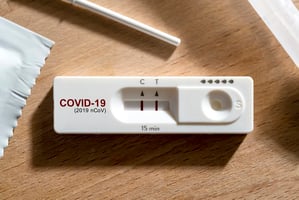TikTok ADHD Content Receives Millions of Views but Is Accurate Less Than Half the Time

Fewer than half the claims about attention-deficit/hyperactivity disorder (ADHD) in the most popular TikTok videos on the topic were clinically accurate, according to a study published yesterday in PLOS One. Yet young adults, particularly those who diagnosed themselves with ADHD, reported that they were likely to recommend these videos to others as ADHD psychoeducation.
Vasileia Karasavva, M.A., of the University of British Columbia, and colleagues identified the 100 most popular TikTok videos on a single day that included the hashtag #ADHD. In total, these videos amassed more than half a billion views. Two clinical psychologists with expertise in ADHD assessed whether the claims made in the videos aligned with the DSM-5. They also rated each video on whether they would recommend it to others as an example of ADHD psychoeducation on a scale of one to five.
Overall, there was 84.8% agreement between the two psychologists about the videos, and only 48.7% of the claims made in the videos were considered accurate by at least one of them. The most common mischaracterization was to suggest that reasonably normal human behavior (e.g., occasional lapses in concentration) was a symptom of ADHD.
The researchers then showed the top five videos the psychologists would recommend and the bottom five they would not recommend to 843 participants between the ages of 18 and 25 (79% female). Among the participants, 224 had no ADHD diagnosis, 198 had received a formal diagnosis from a mental health professional, and 421 were self-diagnosed with ADHD. The participants rated each video on whether they would recommend it to others as an example of ADHD psychoeducation on the same one-to-five scale.
Participants with a self-diagnosis perceived TikToks about ADHD more favorably than those without ADHD. Additionally, those who reported watching ADHD-related TikToks more frequently were more likely to favorably evaluate the top- and bottom-rated TikToks.
Compared with the psychologists, participants had a more favorable view of the bottom five videos and a less favorable view of the top five videos. Yet overall, their ratings of the top five videos (2.82) were higher than their ratings of the bottom five videos (2.32). “Taken together, this suggests that young adults do critically evaluate #ADHD TikTok videos, albeit not always in a pattern that converges with psychologist judgments,” the researchers wrote.
“On a positive note, this [study] underscores the importance of TikTok for democratizing mental health information, and for promoting understanding and destigmatization of the challenges faced by those with ADHD,” Karasavva and colleagues concluded. “At the same time, TikTok’s anecdotal content could lead some viewers to misattribute normal behaviors or those better explained by other conditions to be signs of ADHD, complicating an already challenging differential diagnosis and treatment process.”
For related information, see the Psychiatric Services article “The Need to Adapt the Psychiatric Clinical Assessment to the Digital Age: A Practical Approach.”
(Image: Getty Images/iStock/Wachiwit)
Don't miss out! To learn about newly posted articles in Psychiatric News, please sign up here.





